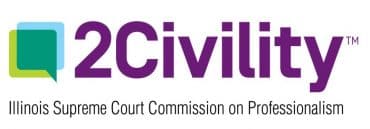Lawyer flat fee billing can be tricky. Transitioning to flat fees means passing the reasonableness test and following local ethics guide rails.

QUESTION: I’m a solo practitioner with a general practice handling everything from real estate transactions to family law. While most of my billing comes from traditional hourly rates for matters, I have always used flat fees for certain client demands such as residential real estate transactions and basic estate planning. I’d like to expand my flat-fee offerings into other practice areas, but I want to make sure it’s a sound financial move and an ethically permissible one.
ANSWER: While most lawyers and clients are accustomed to the traditional billable hour, other pricing options do exist. These include fixed fees, alternative fee structures, and contingency fees, among others.
Table of contents
What Are Lawyer Flat Fees?
In a flat-fee arrangement, also known as fixed pricing, the client pays a set amount at the beginning of the matter to cover the agreed-on work. This model is typically used when the anticipated work is predictable, such as simple estate planning, uncontested divorce and personal bankruptcy.
Such a fee arrangement should be reduced to writing at the start of the representation for the benefit of both parties. When considering a flat-fee arrangement, a lawyer must estimate the time and effort required to complete the service along with a reasonable fee, then determine if representing the client is a sound business decision.
While a flat-fee agreement may seem like a contingency-fee agreement, one is task-based and the other is outcome-based. In a contingent fee arrangement, the lawyer agrees to accept a fixed percentage (often one-third to 40%) of the recovery as a fee only if the case is successful. As a reminder, contingent fees are expressly prohibited in many domestic relations matters and when representing a defendant in a criminal case. (See Model Rule of Professional Conduct 1.5(d).)
The Reasonableness of a Fee
Fixed fees or flat fees can be an attractive alternative to hourly billing in different types of matters. They provide the client with some certainty about the cost of legal services and lawyers with more financial stability and consistency in taking on client matters.
When lawyers consider how they will charge for their legal services, the paramount benchmark of the analysis is Model Rule 1.5(a): “A lawyer shall not make an agreement for, charge, or collect an unreasonable fee or an unreasonable amount for expenses.” The demand for reasonableness of the legal services fee remains regardless of the method of collection.
Model Rule 1.5(a)(1)-(8) outlines factors to be considered in determining the reasonableness of a fee:
- the time and labor required, the novelty and difficulty of the questions involved, and the skill requisite to perform the legal service properly;
- the likelihood, if apparent to the client, that the acceptance of the particular employment will preclude other employment by the lawyer;
- the fee customarily charged in the locality for similar legal services;
- the amount involved and the results obtained;
- the time limitations imposed by the client or by the circumstances;
- the nature and length of the professional relationship with the client;
- the experience, reputation, and ability of the lawyer or lawyers performing the services; and
- whether the fee is fixed or contingent.
These factors are not exclusive. The time, effort, efficiency and skill of the work put forth are often determined on a case-by-case basis. For an example, see Illinois State Bar Association Professional Conduct Advisory Opinion No. 12-02 (January 2012) examining the reasonableness of an estate planning lawyer charging a percentage fee to handle a probate estate (a percentage fee based solely on the size of the estate without regard to the time expended and the other considerations is inappropriate).
As in all representations, the lawyer should communicate to the client the services they will perform for the fixed fee. Clients are not engaging a lawyer’s services to pay for their time; that’s irrelevant to the client. Clients are hiring lawyers to give them value typically framed in a specific outcome. How the lawyer gets there or the amount of time it will take is where the reasonableness of the lawyer’s fee comes into play.
So, in determining a flat-fee pricing model, the starting point need not solely be based on the time it takes to perform the service. Instead, lawyers should be mindful of the value their clients are receiving from their legal services.
When Are Legal Fees Earned?
Ordinarily, fees are earned as work is performed. Some states allow a retainer that is earned upon payment (e.g., see “classic retainer” vs. “advance payment retainer” vs. “security retainer” in Illinois), but in general, a lawyer is required to deposit flat fees and expenses paid into a client trust account in advance for representation. The lawyer withdraws these funds as the fee is earned or expenses are incurred. (See Model Rule 1.15.) Even when a fee is deemed earned upon payment (aka, earned upon receipt), it may not preclude those fees from being refundable to the client in certain circumstances.
Whether a fee is subject to refund to the client demands particular attention from lawyers. For example, what refund is due when a lawyer does not complete all the agreed-on work under the flat-fee agreement, whether at the direction of the client or otherwise? In such a case, any fee collected for services not earned is excessive regardless of the amount. All fees are subject to the reasonableness test, and a claim that a fee is nonrefundable does not justify the retention of an otherwise unreasonable fee.
Remember, a lawyer flat fee may or may not be paid in advance and may or may not be nonrefundable.
The agreement between a lawyer and client determines the nature of the payment, assuming such is allowed in the jurisdiction. For example, if the agreement calls for the lawyer to “earn” the prepaid fee at an hourly rate until exhausted, this is a type of retainer agreement and not a flat-fee arrangement.
Alternatively, a fee may be paid in advance and deemed “earned in part” upon the completion of specified portions of the representation. The fee could be paid and earned in installments triggered by the specified events or tasks. Or the fee could be paid in advance and treated as “earned on receipt” or a nonrefundable payment, so long as ethical guide rails are obeyed.
Are Fees Refundable?
A lawyer must take due care as to the type of retainer agreement in place. Simply designating a prepaid fee as “nonrefundable” may not only be misleading but a violation of ethics rules in a jurisdiction (e.g., Model Rule 1.15(a), 8.4(c)). If allowed, specific language in the client agreement will likely steer the determination.
These issues were discussed in a joint opinion from the Pennsylvania Bar Association and Philadelphia Bar Association legal ethics committees. Joint Formal Opinion 2022-300 addresses ethical considerations in the handling of several related forms of billing for services: flat fees, earned upon receipt, and nonrefundable fees.
The Joint Formal Opinion states in part (emphasis in original):
When there is a ‘flat fee’ arrangement, the lawyer should specifically state whether the fee is intended to be non-refundable and earned upon receipt. … [A] fee agreement that describes a fee as ‘non-refundable’ and ‘earned upon receipt’ should not be considered a fee ‘paid in advance’ and the lawyer is not required to deposit the fee into an IOLTA or other Trust account. As a best practice, to assure that there is no misunderstanding, the lawyer also should specifically state in the fee agreement that the lawyer is not depositing the fees into an IOLTA or other Trust account. Although a client’s written confirmation is not required, it would reduce the likelihood of confusion by having the client do so.
Confirming the agreement to deposit these fees into an operating account explicitly documents the expectations of both the lawyer and the client, and would allow the lawyer to deposit the flat fee into the lawyer’s operating account.
The opinion goes on to reiterate that the allowance of the lawyer to retain the payment as nonrefundable does not conclude the inquiry. When the lawyer-client engagement has concluded, the lawyer must still determine whether to refund any portion of the fee that is “clearly excessive” — again, the reasonableness test applies.
State Bar of Arizona Opinion 10-03 makes the same distinction:
This minimum fee could be designated as ‘earned on receipt’ and ‘non-refundable,’ in which case the funds should be placed in the lawyer’s operating account. If the minimum fee is not so designated, the funds should be placed in the trust account and transferred to the operating account when the funds have been earned.
Some jurisdictions have proactively addressed flat fees in their rules. In Colorado, Rule 1.5(h) was added in 2019 and defines a flat fee as “a fee for specified legal services for which the client agrees to pay a fixed amount, regardless of the time or effort involved.” The flat-fee provision requires four components to be put in writing with the client at or near the start of representation:
- A description of the services the lawyer agrees to perform;
- The amount to be paid to the lawyer and the timing of payment for the services to be performed;
- If any portion of the flat fee is to be earned by the lawyer before conclusion of the representation, the amount to be earned upon the completion of specified tasks or the occurrence of specified events; and
- The amount or the method of calculating the fees the lawyer earns, if any, should the representation terminate before completion of the specified tasks or the occurrence of specified events.
Colorado has even published a sample flat-fee agreement here. Other states that mention flat fees in their rules include California, Florida and Massachusetts.
The ‘Reasonable Test’ Remains Universal
All billing structures have pros and cons. Regardless of what your jurisdiction allows and what billing option you and your clients agree on, the reasonable test remains universal. A lawyer is only entitled to be compensated on a quantum meruit basis for the legal services that the lawyer performed on the client’s behalf.
Nevertheless, lawyers do not work for free and the Model Rules of Professional Conduct provide that lawyers are entitled to earned compensation. The opinions interpreting the ethics rules clearly emphasize that a meeting of the minds at the onset of representation is essential.
Whether a lawyer is engaged to draft a will or defend an alleged crime, a written agreement spelling out the work to be done, the consideration to be paid, and the timing of both is a wise practice.
Resources
- Alabama State Bar Formal Opinion 2008-03 – Lawyers’ Trust Account Obligations With Regard to Retainers and Set Fees
- State Bar of Arizona Ethics Opinion 10-03 – Fees; Fee Agreement; Non-Refundable Fees; Flat Fees
- State Bar of Georgia Formal Advisory Opinion No. 91-2 & Formal Advisory Opinion No. 03-1
- State of Maine Board of Overseers of the Bar Opinion 211 – Allowance of Nonrefundable Fee Agreements
- Supreme Court of Missouri Formal Opinion 128 – Nonrefundable Fees
- Montana Bar Advisory Ethics Opinion 080711
- New York State Bar Association Committee on Professional Ethics Opinion 1202 – Legal Fees
- North Carolina State Bar 97 Formal Ethics Opinion 4 – Nonrefundable Fees
- Ohio Supreme Court Board of Professional Conduct Opinion 2016-1 – Flat-Fee Agreements Paid in Advance of Representation
- Oregon Bar Formal Opinion No 2005-151 (revised 2011) – Fee Agreements: Fixed Fees
- Pennsylvania Bar Association & Philadelphia Bar Association Joint Formal Opinion 2022-300 – Ethical Considerations in the Handling of Flat, Earned Upon Receipt and Non-Refundable Fees
- Texas Center for Legal Ethics Opinion 679
- Virginia Legal Ethics Opinion 1606 – Fees
Laws, rules, regulations, and opinions vary by jurisdiction. The information provided in this post does not, and is not intended to, constitute legal advice; instead, all information, content and materials are for general informational purposes only.
About the Illinois Supreme Court Commission on Professionalism
The Illinois Supreme Court Commission on Professionalism was established by the Illinois Supreme Court in 2005 under Supreme Court Rule 799(c) to foster increased civility, professionalism and inclusiveness among lawyers and judges in Illinois. By advancing the highest standards of conduct among lawyers and judges, the Commission works to better serve clients and society alike. For more information, visit 2Civility.org and follow @2CivilityOrg.






















